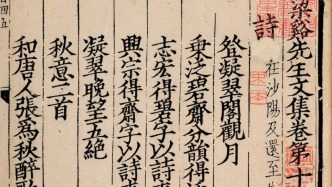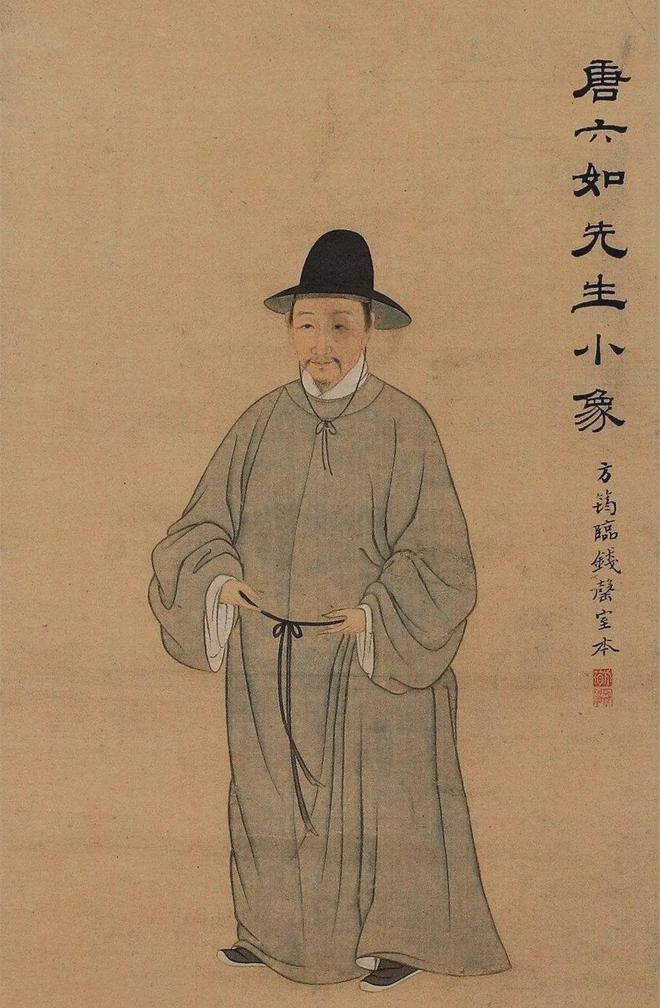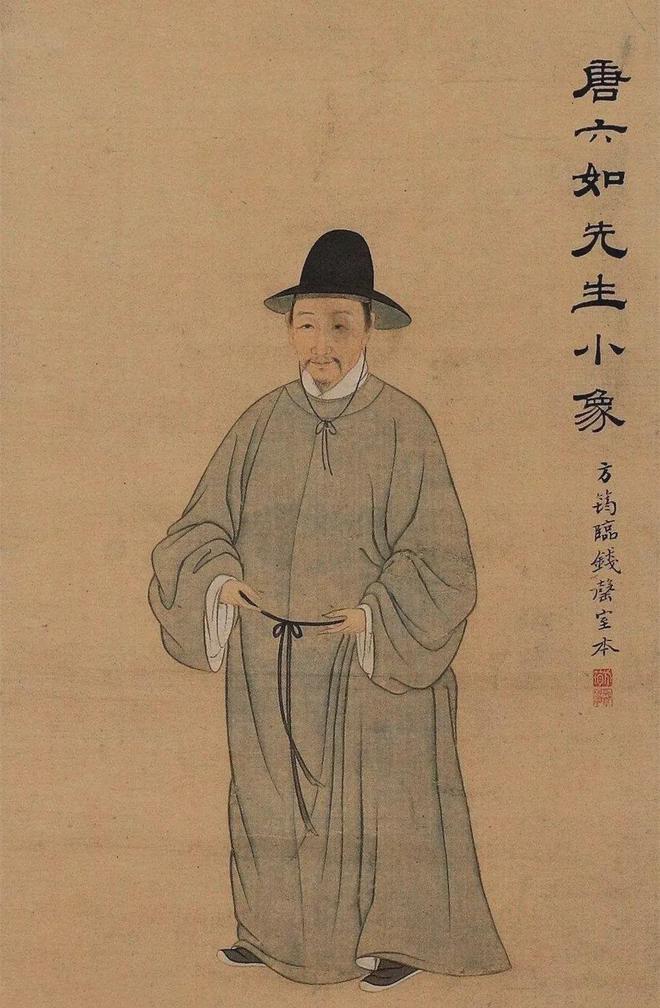
Since the 115,000-square-meter East Library of Shanghai Library was officially opened to the public, it has become a new cultural landmark in Shanghai, and it is also striving to become a "study, living room, and studio" that citizens enjoy. On the seventh floor, there is a special "Collection Museum", which will focus on the long-term display of the above-mentioned collections.
Peng Mei News has learned that one of the first exhibitions, with the theme of "Books and Books", systematically displays the culture from the writing on the paper to the extension of the stone, from the ancient engraving, movable type printing, to the modern technology such as lead printing and lithography. The road of dissemination shows the long-standing development of Chinese culture from one side. Among them, it can be called the "treasure of the town hall", and Weng Tonghe's old collection of Song Dynasty "Long and Short Classics" is also included in the exhibition.
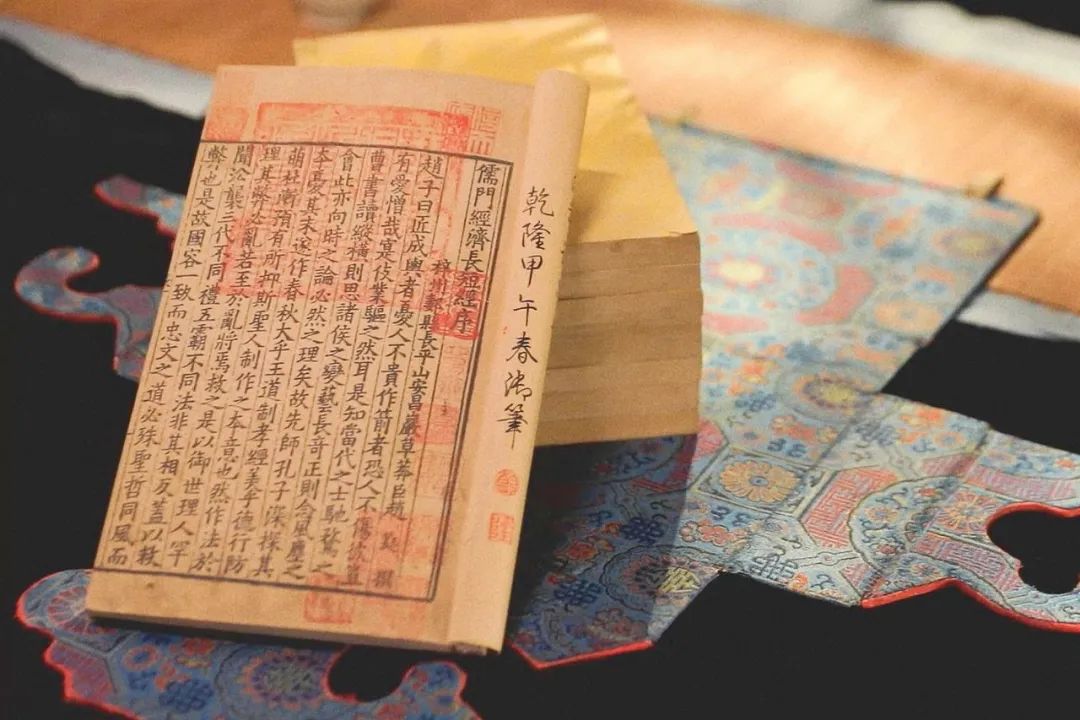
Pictured above is the Song block-printed version of "Long and Short Classics" in the collection
The Long and Short Classics is a book written by Zhao Rui in the Tang Dynasty. Zhao Rui, whose courtesy name is Taibin, with the name Dongyanzi, was a native of Yanting, Zizhou (now Yanting County, Sichuan Province), and was a scholar during the Tang Dynasty. He is knowledgeable and knowledgeable, but he lives in seclusion. Tang Minghuang wanted to recruit him to be an official in the imperial court many times, but he refused.
The public is a little unfamiliar with Zhao Rui's name, but he has a very famous friend - Li Bai. Zhao Rui and Li Bai were called the "two heroes of Shu" in the Tang Dynasty, and there was a saying that "Li Bai's essays, Zhao Rui's skills".
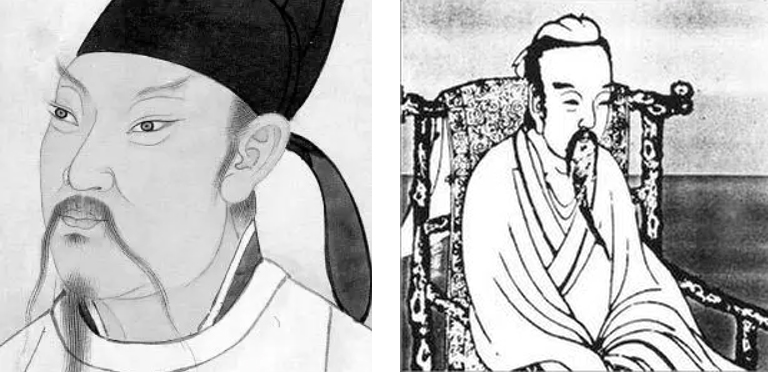
Zhao Rui and Li Bai were called the "two heroes of Shu" in the Tang Dynasty
The Song edition of the "Long and Short Classics", and the solitary edition into the "Siku Quanshu"
"Long Dian Jing" is a miscellaneous book that draws on the rise and fall of the pre-Qin period to the Sui Dynasty, and discusses "the technique of changing the power of the king's hegemony to the long and short". The whole book is divided into five categories: text, hegemony, power discussion, miscellaneous theory, and military power, and brings together the views of Confucianism, Legalism, Taoism and even the five elements of Yin and Yang. This is actually quite similar to the thinking of the Warring States period.
The word "long and short" comes from the word "long and short, vertical and horizontal", which represents the academic of Zongheng. As one of the "Hundred Schools of Masters" in the Warring States Period, their thoughts are not limited to the theory of one family. It can be seen that the academics of the Zongheng family are very close to reality, and it is a kind of learning that is "practically applied".
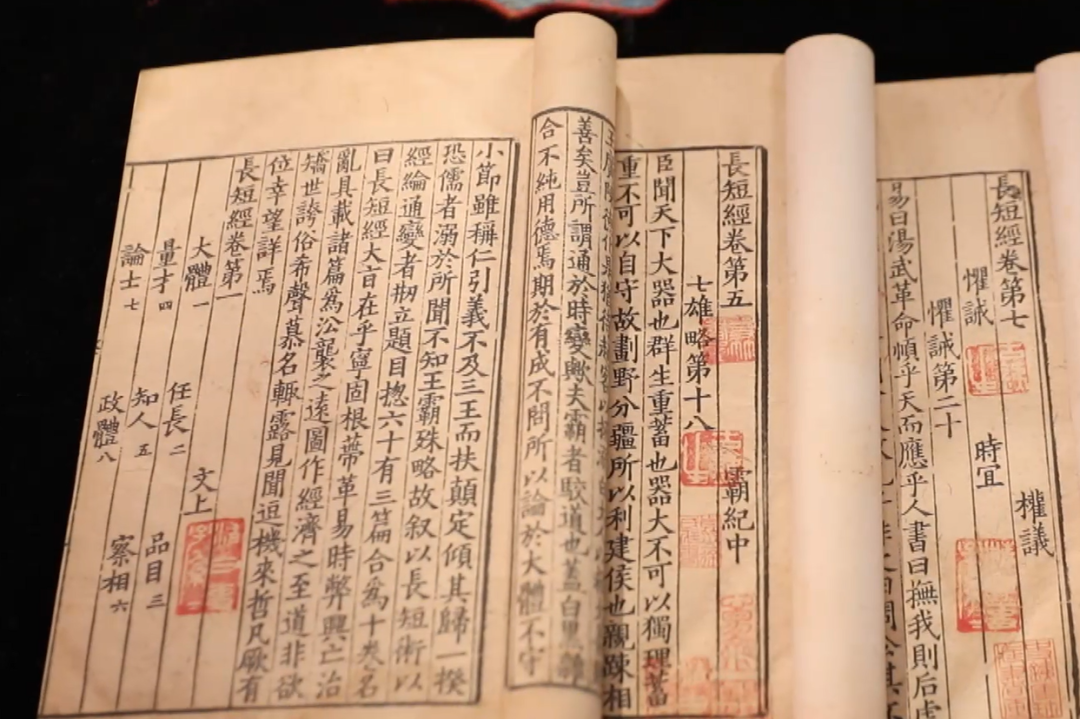
Pictured above is the Song block-printed version of "Long and Short Classics" in the collection
The Long and Short Classics in the Shanghai Library is the earliest known version, and it is also the only one engraved in Song Dynasty. In the Song Dynasty, engraving and printing flourished. The Song blockbooks were exquisitely printed, with sparse layout, exquisite use of ink, and exquisite calligraphy. They have extremely high historical value, cultural value and collection value. Gao Lian of the Ming Dynasty once commented: "The book of the Song Dynasty, the paper is hard and soft, the calligraphy and painting are like writing, the grid is unilateral, there are many taboo characters, the ink is thin, although it is wet with water, it is dry and has no traces. , the odor of its own."
Since the Song version has a history of more than a thousand years, it is not easy for it to be handed down to this day, and it is rare to see it in the world. In the field of ancient book collection, the Song version of the book is known as "one page of the Song version, one tael of gold".
The "Long and Short Classics" collected by the Shanghai Library avoids the character "Heng" of Song Zhenzong, and the book is engraved with the journals of "New Seal of Hangzhou Jingjieyuan" and "Jingjieyuan Seal". Although this book was published and engraved in the Song Dynasty, it was rarely circulated in the Yuan and Ming dynasties. It was almost never seen a copy or even a copy. It was not until the Qing Dynasty that someone engraved it into a series of books.
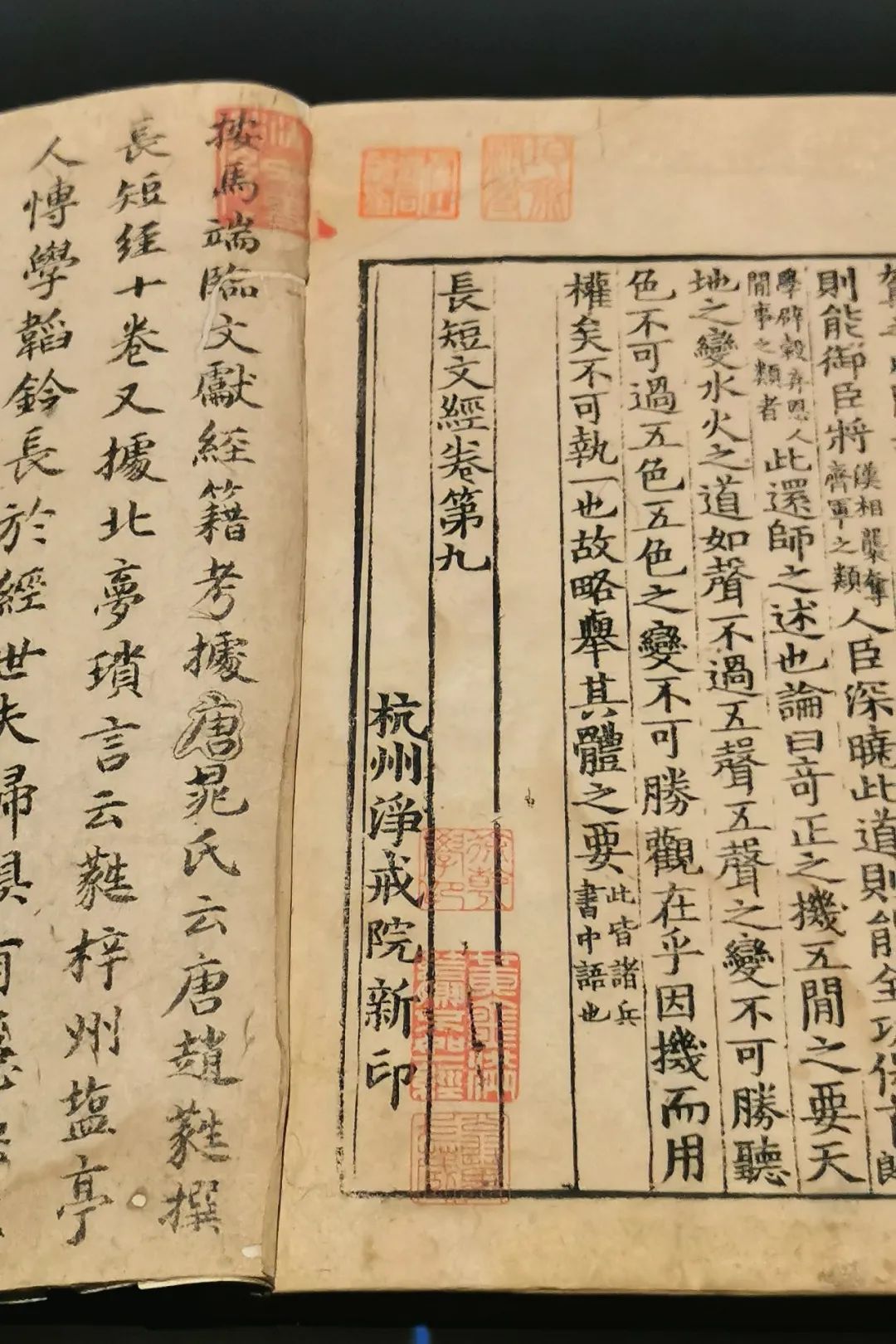
The book is engraved with "New Seal of Hangzhou Jingjieyuan"
This solitary copy of the Song Dynasty was collected by Xu Qianxue in the early Qing Dynasty, and later passed to Li Shouqian. If you donate your identity to books, this one is one of your offerings.
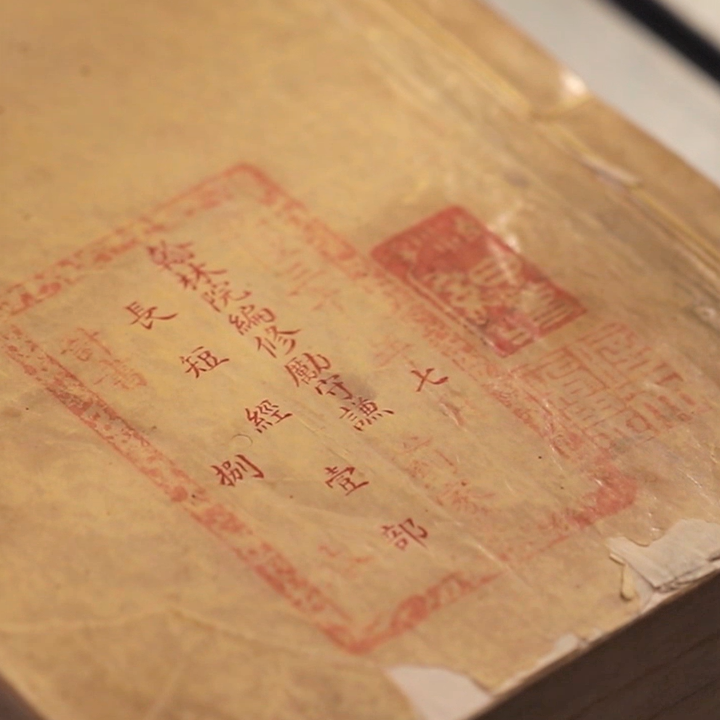
Li Shouqian engraved
In order to encourage all parties to submit books, Qianlong promised that in the event of an isolated secret book, he would inscribe it in his own hand. On the front page of this "Long and Short Classics", there are four quatrains with imperial inscriptions in the thirty-ninth year of Qianlong, which shows that he attaches great importance to and loves this rare treasure. This edition is also stamped with the seal of the Hanlin Academy in the 38th year of Qianlong's reign and the square seal of the Hanlin Academy in Manchu and Chinese texts in Zhu Wen.
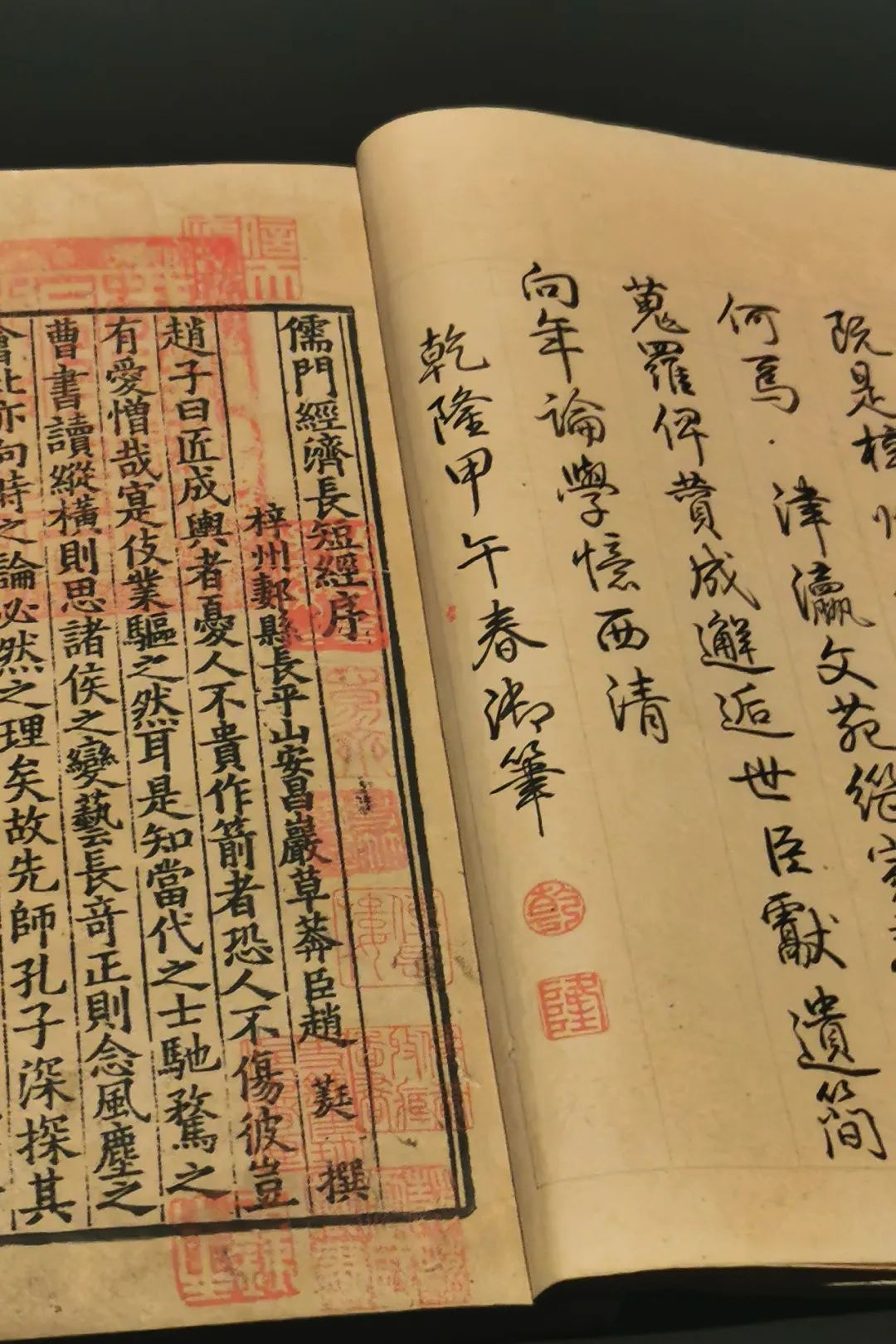
Qianlong imperial pen
Changshu "Weng's Book Collection" was collected in 2000. Above picture
The "Long and Short Classics" in the Shanghai Library comes from the collection of Weng's family. Weng Tonghe praised this book as "the best inscribed in the Song Dynasty", but the price was also very high. The bookseller actually asked for 800 gold, and finally received it at a "giant price" of 350 gold. Since then, this Songbook has been collected by the Weng family in Changshu.
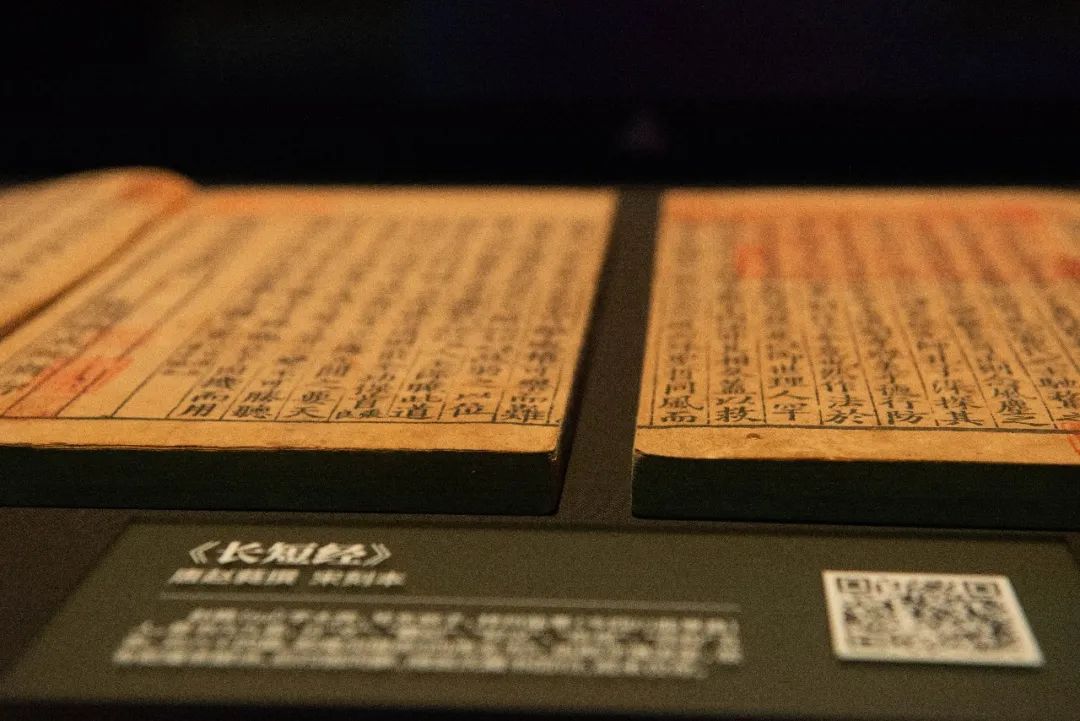
exhibition site
"Weng's Collection of Books" refers to a collection of books by Weng Xianfeng of the Weng family who lived in Changshu, Jiangsu since the beginning of time. Weng Xianfeng's son, Weng Xincun, was diligent in collecting and obtained books from Chen Kuiji Ruilou and other houses, and the quality has been considerable. Weng Xincun's sons, Weng Tongshu and Weng Tonghe, inherited the book-collecting business of their predecessors. At the end of the Qing Dynasty, the owner of Yifu's house scattered books, and Weng Tonghe collected some fine works, which significantly improved the quality of Weng's book collection. And their descendants, nephews and grandchildren, can all inherit their ancestors' aspirations, keep their books and keep them from falling. Weng's collection of books has gone through six generations, and they have become an inseparable whole.
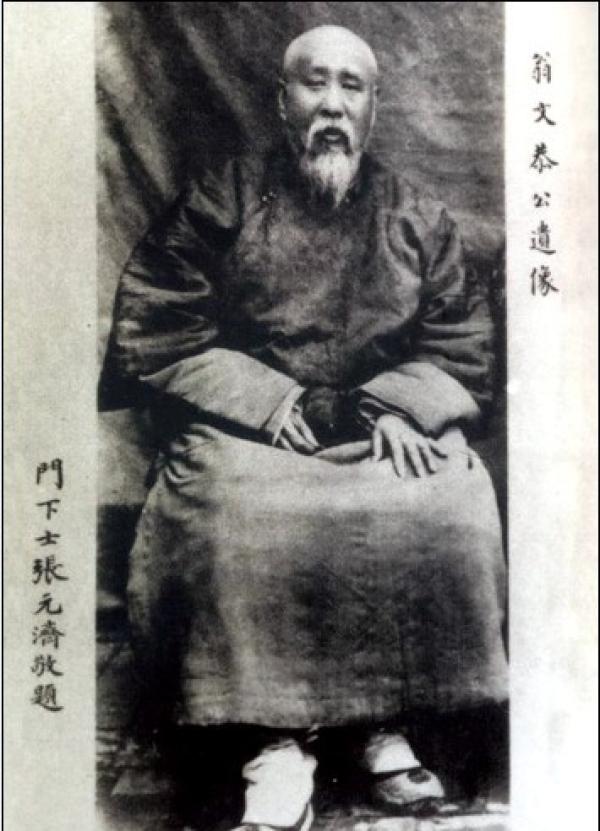
Weng Tonghe
In the 1940s, Weng Tong and his descendant, Mr. Weng Wange, brought a batch of rare ancient books, including the Long and Short Classics, to the United States. In 2000, with the support of the Shanghai Municipal Government, the Shanghai Library acquired 80 kinds of rare books collected by Weng Tong and the fifth grandson, Weng Wange, from the United States for US$4.5 million. This book eventually returned to its roots with Weng's collection, returned to the motherland, and was collected in the Shanghai Library.
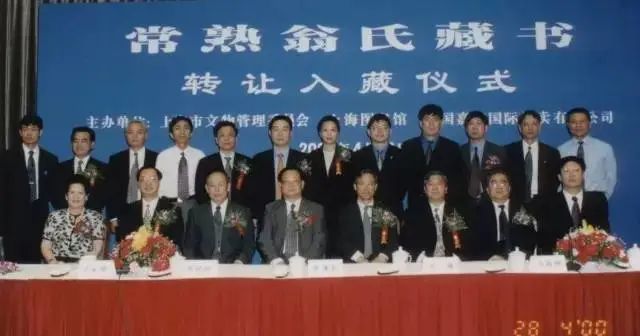
On March 24, 2000, 80 kinds of "Weng's Collection of Books" were collected.
Among the 80 rare books collected by Weng Wange, there are 11 kinds of Song-cut editions, "Ji Yun", "Shao Zi's Views Inside and Outside", "Long and Short Classics", "Re-engraved Foot Books and Admonitions", "Huichang Yipin System Collection", "Huichang Yipin Collection" Song editions such as Dingmao Collection and Songshan Jushi Collection are all isolated editions.
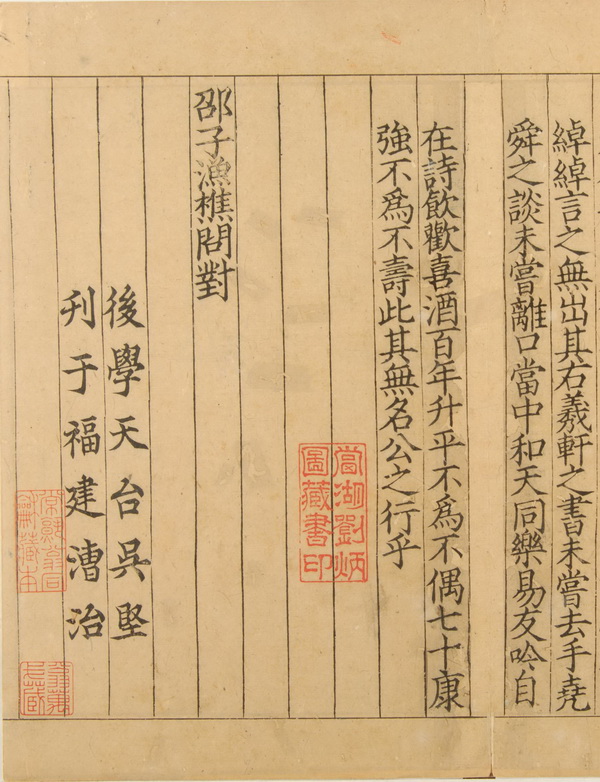
Song version of "Shao Zi's Viewing Objects" and "The Fisherman's Questions", now hidden in the above picture
One of the main reasons why Shanghai Library bought back Weng Wange's books is that there are old collections of Prince Yi's mansion in the Qing Dynasty. The owner of Yifu, Hongxiao, is the brother of Emperor Qianlong, and he likes classics, most of which are rare in the world. When the "Siku Quanshu" was compiled, others were ordered by Qianlong to donate the books, but Yifu was not involved. As a result, there is a situation where the book that the world thinks is lost, but there is a collection in Yifu.
However, in the early years of Tongzhi, because the Empress Dowager Cixi and Prince Gong Yixin launched a coup d'etat by Xin You, and executed the eight ministers of Gu Ming, including Zai Yuan, who had attacked Prince Jue Yi, the Yi House declined, and the collection of books was scattered in the bookstore.
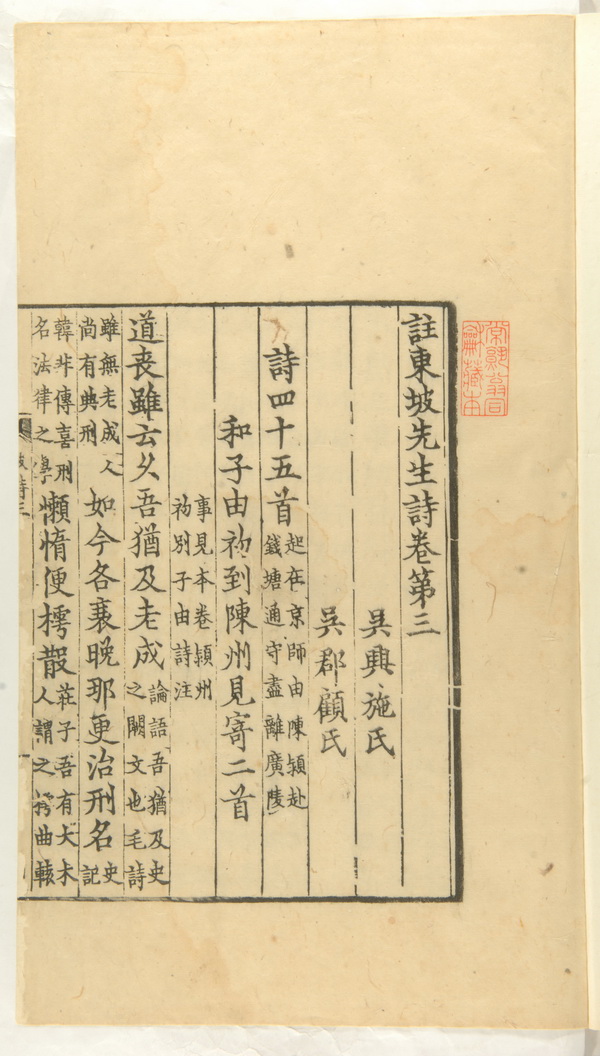
Song edition "Notes on Mr. Dongpo's Poems", now hidden in the picture above
At that time, there were four main ones who bought the Yifu collection first, namely Yang Shaohe Haiyuan Pavilion in Liaocheng, Shandong, Panzuyin Pangxizhai in Wuxian County, Jiangsu Province, Renhe Zhu Xueqin Jieyilu in Zhejiang and Wengtonghe Junzhai in Changshu, Jiangsu. Some of the rare books of Pangxi Zhai were collected in the picture above as early as the early 1950s, and most of the books in Jieyilu were donated to the picture above by Mr. Zhang Zimei, a descendant of a foreign family, in the early 1980s. Including the Song block editions "Ji Yun", "Notes on Mr. Dongpo's Poems" and "Shao Zi's Viewing Objects" are also obtained from the above picture.
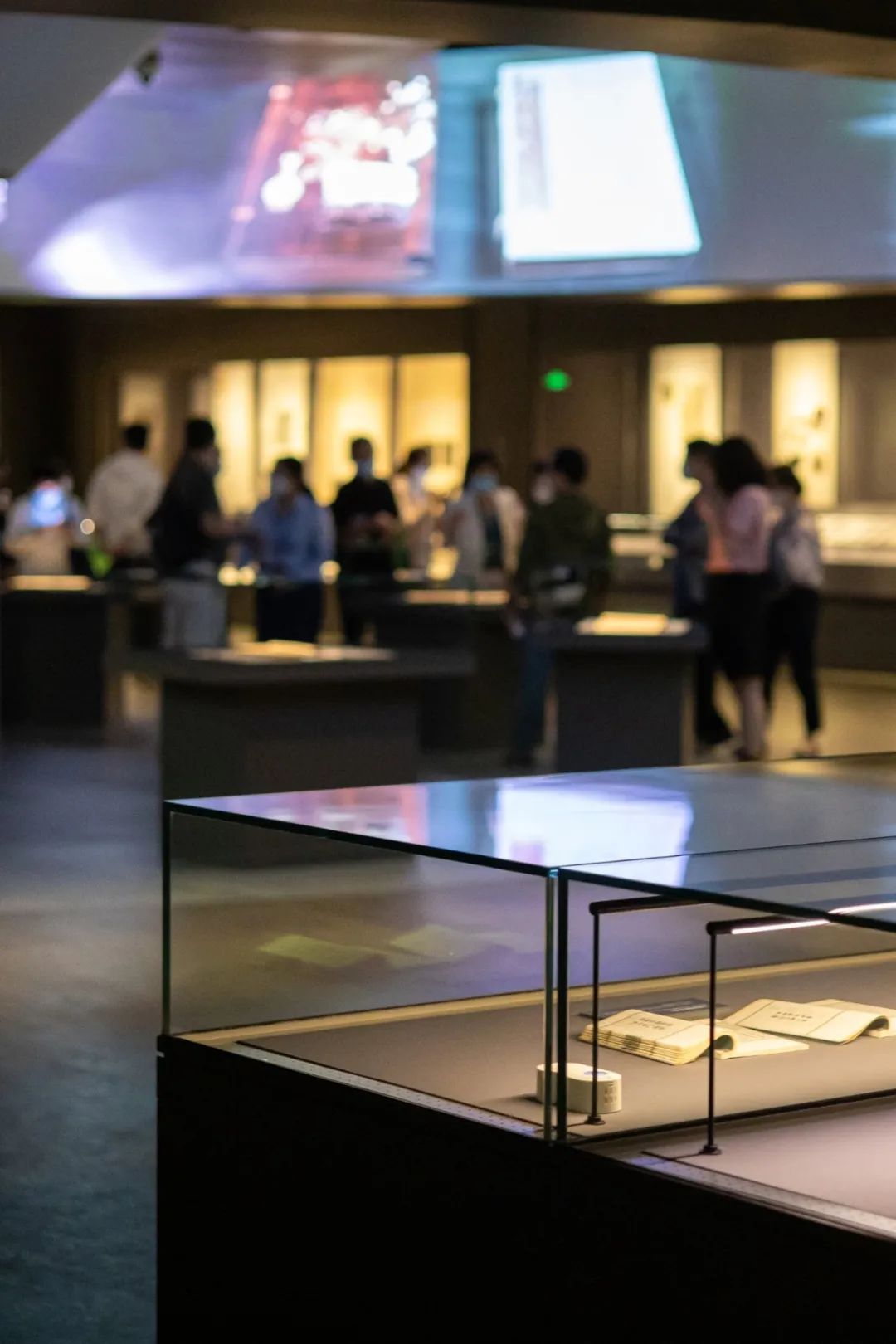
Interior view of the collection boutique hall on the seventh floor of the East Building of Shanghai Library
Note: This article is based on previous reports on the official WeChat account of Shanghai Library and The Paper.
